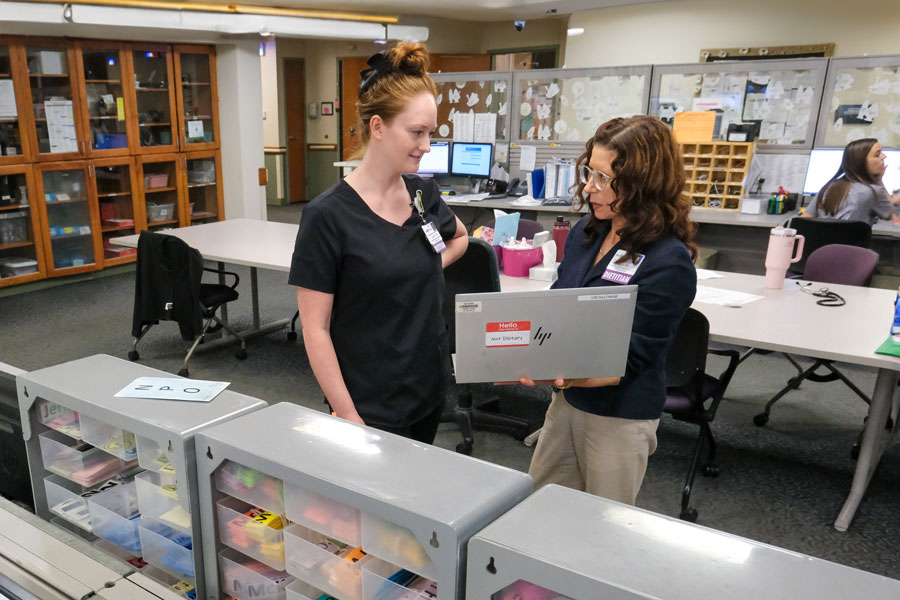Preceptor Hub
Supporting Our
Preceptors
Empowering you to empower our students.
Your dedication enables us to provide the essential training and education students need to become successful dietitians. Within this hub, you'll find resources to provide a productive rotation.

CPEU Opportunities
Earn continuing professional education units (CPEUs) by being a preceptor.
8 Credit Training Program
Through ACEND, you can take a free 8-credit training program to improve your skills as a preceptor.
Improve Your Skills
Learn more about the Nutrition Care Process (NCP) to plan and provide treatment.
Supplement Your Training
Here are a variety of video links to learn how to implement more effective strategies as a preceptor for dietetic interns.
- Using Questions as a Teaching Strategy: asking good questions helps intern become better independent problem-solvers.
- The Dietitian Perspective: What Makes a Successful Preceptor?: hear what makes a successful experience from fellow preceptors.
- The Intern Perspective: What Makes a Successful Preceptor?: learn straight from the source for how to improve your abilities and maximize their time at your facility.
- Tips for Dietetic Preceptors: Part 1 and Tips for Dietetic Preceptors: Part 2: get insight into how to be an effective preceptor.
- Critical Thinking in a Dietetic Internship Setting: help foster critical thinking in the minds of future dietitians.
Important Details for Intern Projects
Get in-depth knowledge to help facilitate work for interns at your facilities.
The intern must contact their preceptor no less than 2 hours prior to start time of rotation. A phone call should be made to the preceptor and email to coordinator/director.
Make up of rotation experience of a single day will be at the discretion of the preceptor in consultation with the coordinator/director. Timesheets are required and each intern is expected to obtain 1,000 precepted hours. Dates of make up will occur (if necessary) during the holiday break or at the end of the entire internship schedule in May, or online Friday classes.
Allowing interns to work on their portfolio during the rotation is not necessary, but often appreciated. Interns are expected to complete portfolio assignments outside of rotation hours, as needed.
If an intern is assigned to work at home, then these hours can count for the rotation. We do have some rotations that do allow this due to inclement weather, illness or just because it warrants itself for the nature of the rotation.
Each rotation has different projects that interns are expected to complete. It is ultimately up to you as the preceptor to decide on variations of the projects to both help you as an organization and the intern. Please consult the director if you have any questions.
The UW-Green Bay internship has an emphasis in leadership. Therefore, interns are consistently participating in or leading various projects throughout the entirety of the internship. Some of the projects include cooking demonstrations, community outreach events and participation in research review conferences.
We would like you to be understanding and supportive of the many additional projects interns are participating in. However, it is up to you, as the preceptor if you would like the intern to make up any missed time. Please contact the director if you have any questions.
The time you spend with an intern depends on the intern’s knowledge and skill level. At a minimum, you would want to check in on a regular basis to make sure the intern is on track with regards to assignments and work to be accomplished. It is important to be available to answer questions and provide opportunities to the intern to learn and gain valuable experiences. Interns are competent in the field of nutrition and are well prepared, but still may need guidance throughout the rotation.

Access More Support
Our team is always here to help you create the best experience for our students. If you're interested in learning more about serving as a preceptor for our program, please contact Heather Masters, Dietetic Internship Director.